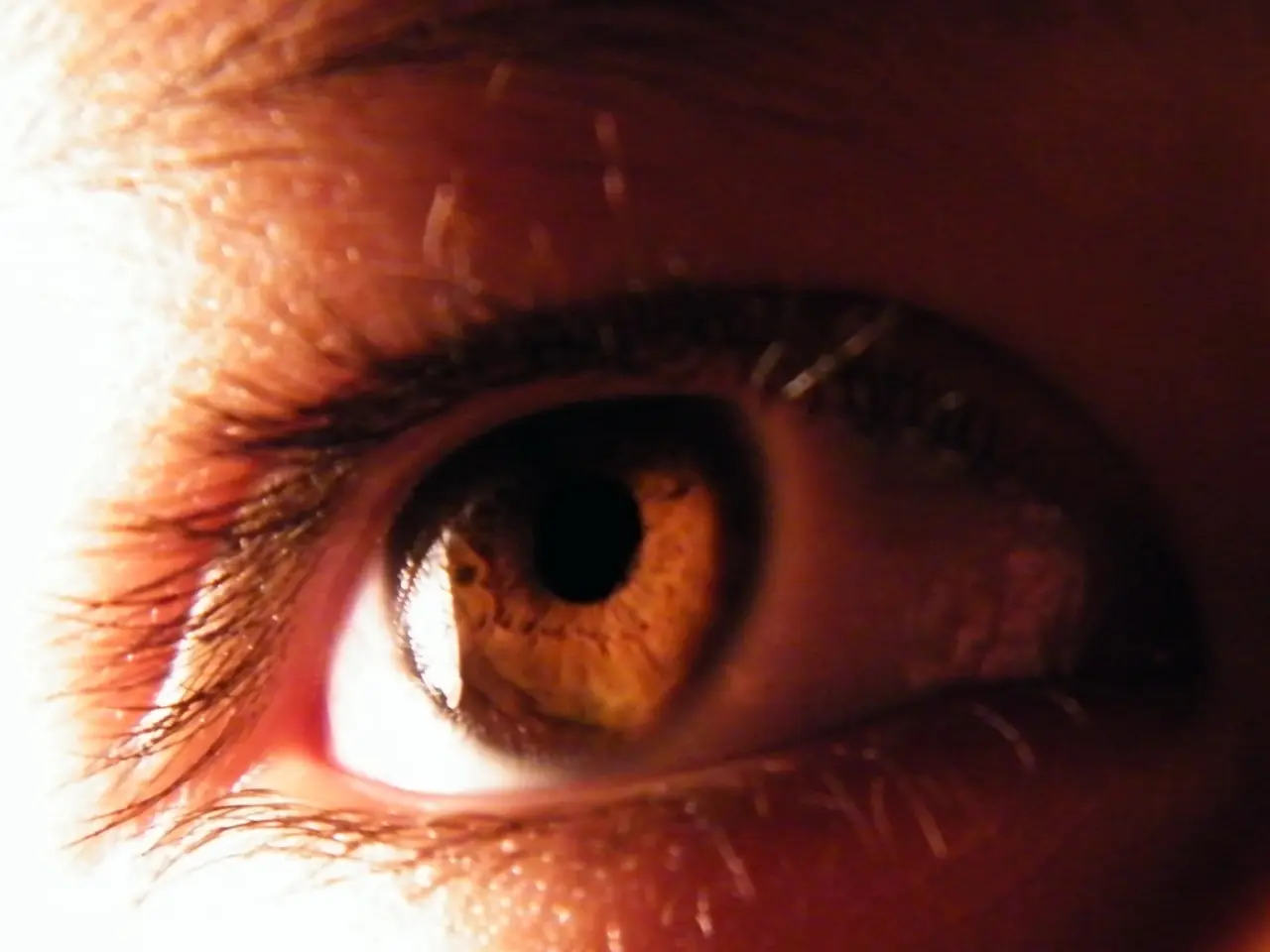Eye Skin Dryness: Root Causes, Remedies, and Further Insights
Dry skin around the eyes can be a common and uncomfortable problem, affecting many people. This article aims to provide a comprehensive guide on home remedies, causes, and prevention methods for this issue.
Home treatments for dry skin around the eyes can be simple and effective. Applying warm compresses, cucumber slices, aloe vera gel, and coconut oil can help moisturize, soothe inflammation, and stimulate skin hydration and repair.
Warm compresses work by stimulating tear production and improving eyelid gland function, thereby relieving dryness. Cucumber slices, rich in water and vitamins, reduce inflammation and moisturize the eyelid tissue. Aloe vera contains antioxidants and vitamins that nourish and hydrate the skin, promoting collagen production to improve skin firmness around the eyes. Coconut oil, high in fatty acids and vitamin E, deeply moisturizes and protects delicate skin, repairing damage from dryness and environmental stressors.
Underlying causes for dry skin around the eyes can vary. Environmental exposure, such as wind, dry air, sun, dust, smoke, prolonged screen time, and air conditioning, can remove moisture from the eyes and surrounding skin, leading to dryness. Aging also plays a role, as tear production and skin moisture naturally decrease with age, particularly after age 50. Certain medications, like antihistamines, antidepressants, diuretics, and beta-blockers, can reduce tear and skin moisture production. Hormonal changes, including menopause, can also reduce moisture in eyes and skin. Autoimmune diseases, diabetes, thyroid disorders, and allergies can cause or worsen dryness around the eyes.
Prevention methods for dry skin around the eyes include protecting the area from environmental stress, using gentle home remedies to restore moisture, and addressing any underlying medical or medication-related causes. It is advisable to consult a healthcare professional for further evaluation and treatment if dryness persists or worsens. In some cases, patch testing may be necessary to determine the cause of contact dermatitis.
Some people have a higher chance of developing dry skin, including those over 40 years old, who live in cold countries or climates, who smoke, or who have brown, black, or fair skin.
Dry skin around the eyes can also be a symptom of conditions such as eczema, blepharitis, and conjunctivitis. Eczema, a group of skin conditions affecting more than 31 million people in the United States, can affect the skin around the eyes, particularly in people with eczema elsewhere on their face. Eyelid eczema is more common in people with eczema elsewhere on their face.
Blepharitis is inflammation of the skin on the eyelid, most commonly associated with seborrhoeic dermatitis but can affect anyone. Symptoms include small, yellow scales around the eyelids, itchy eyes, and a "gritty" feeling in the eye.
Conjunctivitis, or pink eye, refers to the inflammation of the conjunctiva, the clear outer covering of the eye. Allergies, bacteria, and viruses can cause conjunctivitis. Symptoms include crusty eyelids and eyelashes, pink or red in the white part of the eye, excess tear production, pus or mucus discharge from the eye, and feeling like there is something in the eye.
People can treat conjunctivitis at home with a cold compress and artificial tears. In some cases, people may need medical treatment, such as antibiotics and antiviral medications.
In summary, managing dry skin around the eyes effectively involves protecting the area from environmental stress, using gentle home remedies to restore moisture, and addressing any underlying medical or medication-related causes. If dryness persists or worsens, it is advisable to consult a healthcare professional for further evaluation and treatment.
[1] Mayo Clinic. (2021). Dry eyes: Symptoms & causes. [online] Available at: https://www.mayoclinic.org/diseases-conditions/dry-eye-syndrome/symptoms-causes/syc-20370321
[2] American Academy of Dermatology. (2021). Dry skin around the eyes. [online] Available at: https://www.aad.org/public/diseases/a-z/dry-skin-around-eyes
[3] Healthline. (2021). Dry skin around the eyes: Causes and treatments. [online] Available at: https://www.healthline.com/health/dry-skin-around-eyes
[4] Cleveland Clinic. (2021). Dry skin around the eyes: Causes and treatments. [online] Available at: https://my.clevelandclinic.org/health/diseases/17307-dry-skin-around-the-eyes
- In addition to home remedies, dry skin around the eyes can be a symptom of medical-conditions like eczema, blepharitis, and conjunctivitis, requiring professional medical attention.
- Useful as home treatments may be, if dryness in the skin around the eyes persists or worsens, it is crucial to consult a healthcare professional for a thorough evaluation and suitable treatment.
- Certain medications such as antihistamines, antidepressants, diuretics, and beta-blockers can reduce tear and skin moisture production, potentially contributing to dryness around the eyes.
- Remaining hydrated, shielding the skin around the eyes from environmental stressors, and using gentle skincare products free of potential allergens can help prevent dry skin.
- Science has shown that coconut oil, rich in fatty acids and vitamin E, deeply moisturizes and protects the delicate skin around the eyes, aiding in its repair from dryness and environmental stressors.
- Aloe vera, a plant-based remedy, contains antioxidants and vitamins that nourish and hydrate the skin around the eyes, promoting collagen production to improve its firmness.
- Psoriasis, a chronic autoimmune condition, can cause scaling, inflammation, and redness on the skin, sometimes including the area around the eyes, resulting in dryness.
- Preventive measures can include the use of humidifiers to combat dry air and the adoption of a sensitive skincare regimen tailored to the specific needs of one's dry skin type.
- The American Academy of Dermatology provides resources and advice on dry skin around the eyes, suggesting home treatments and offering insights into prevention methods and treatments.
- Blepharitis, characterized by inflammation of the skin on the eyelid, can cause dryness, discomfort, and even vision issues when left untreated, making it essential to seek prompt medical attention.
- Cucumber slices, with their high water content and vitamins, effectively reduce inflammation and moisturize the delicate eyelid tissue, providing temporary relief for dry skin around the eyes.
- Dry skin and its related conditions like eczema, blepharitis, and conjunctivitis can negatively impact eye health, skin health, and wellbeing, emphasizing the importance of proper skincare, treatment, and medical attention when necessary.



